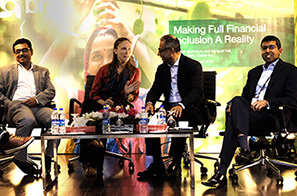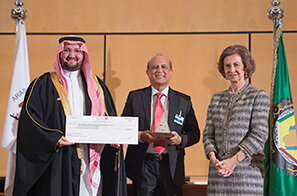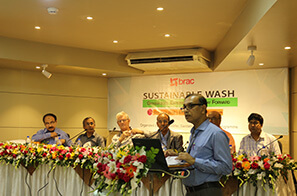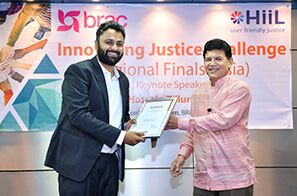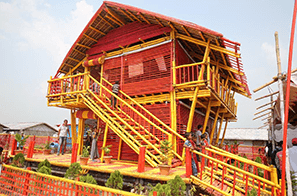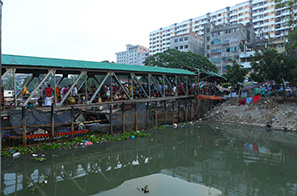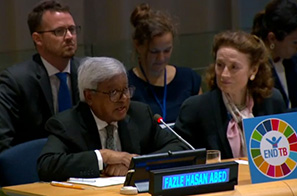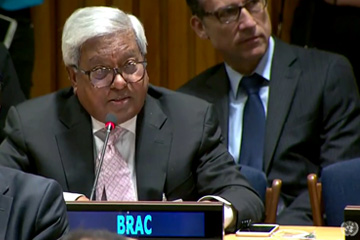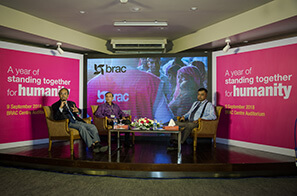
News (830)
BRAC observes Financial Inclusion Week
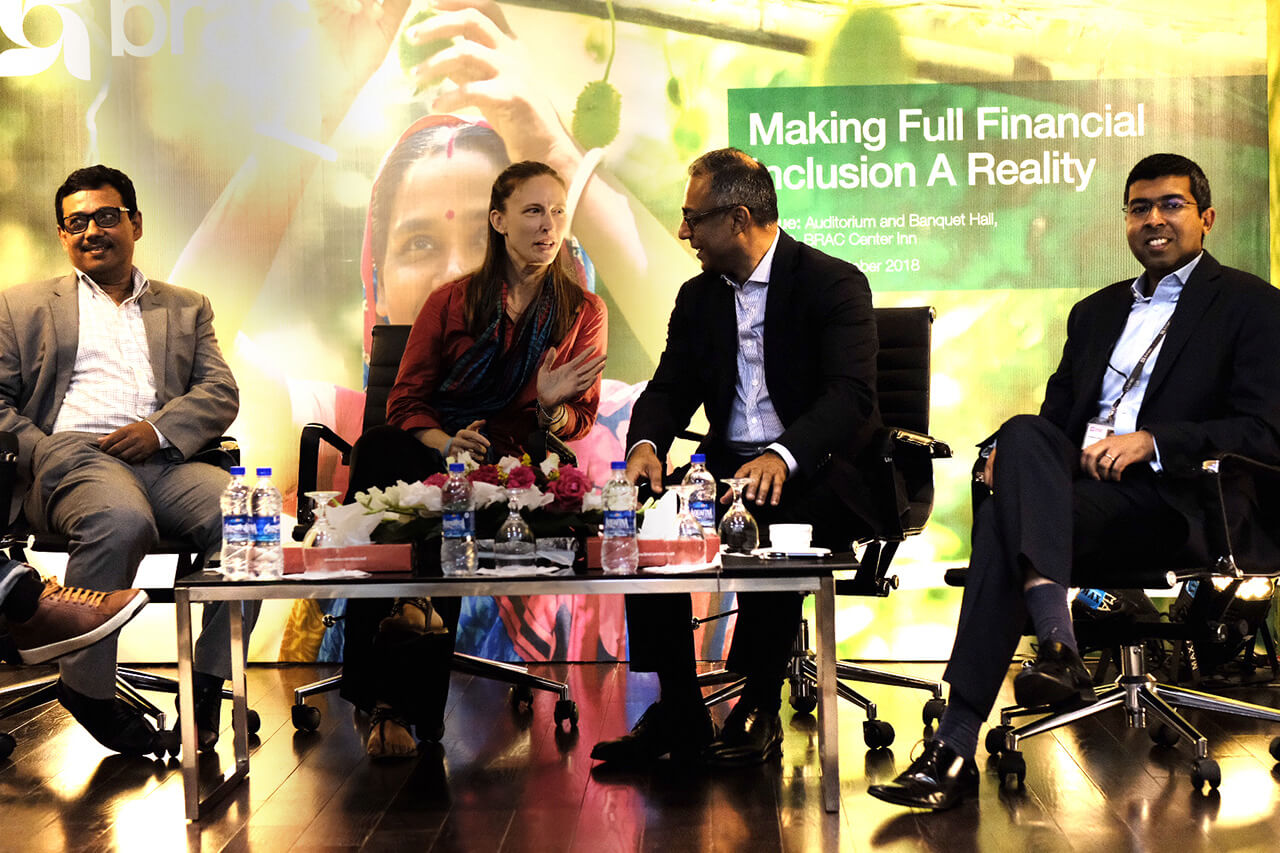
Bangladesh should strengthen its effort to build an inclusive financial system to provide safe, quality and appropriate financial services to all people, those living in poverty and remote areas in particular. This comprehensive system should be able to ensure access of financially capable clients to a range of quality financial services at affordable prices, with convenience, dignity, and consumer protections, delivered by a range of providers in a stable, competitive market.
Speakers expressed these views at a discussion session today on Wednesday (31 October 2018), organised at the BRAC Centre in the capital. BRAC arranged the event to observe Financial Inclusion Week, introduced and coordinated by the Center for Financial Inclusion at Accion (CFI), a Washington DC based non-profit think tank.
Themed on 'getting inclusion right' the timeline for Financial Inclusion Week 2018 is from October 29 to November 2.
Shameran Abed, director, BRAC Microfinance, Maria A May, programme officer, Bill and Melinda Gates Foundation, Ashraful Islam, country project coordinator, SHIFT SAARC, Bangladesh at United Nations Capital Development Fund, and Feisal Hussain, team leader, Business Finance for the Poor in Bangladesh, Nathan Associates, spoke at the discussion. Rakib Ovi, programme manager, Social Innovation Lab, BRAC, moderated the session.
The speakers mentioned that at present in Bangladesh 50 per cent of the population aged 15 years or more do not have any individual or group account in any bank or financial institutions. For women of this age group the percentage is as high as 64 per cent. They said to build an appropriately inclusive financial system we have to first identify the factors preventing a very large number of people from accessing institutional financial services.
"Having full inclusion means creating access to finance that people actually need and the goal should be to give everyone access through a financial institution. But the reality is, traditional banks are not interested about financial inclusion," said Shameran Abed.
Women are not fully in charge of financial management in the household and so huge gender gaps exist in financial inclusion in Bangladesh, said Maria A May, stressing adequate initiatives should be undertaken to address the issue.
The draft of the national financial inclusion strategy is almost ready, Feisal Hussain informed the audience, saying that financial service providers and digital ecosystems are two key themes of the strategy.
BRAC wins AGFUND International Prize for inclusive and quality education model
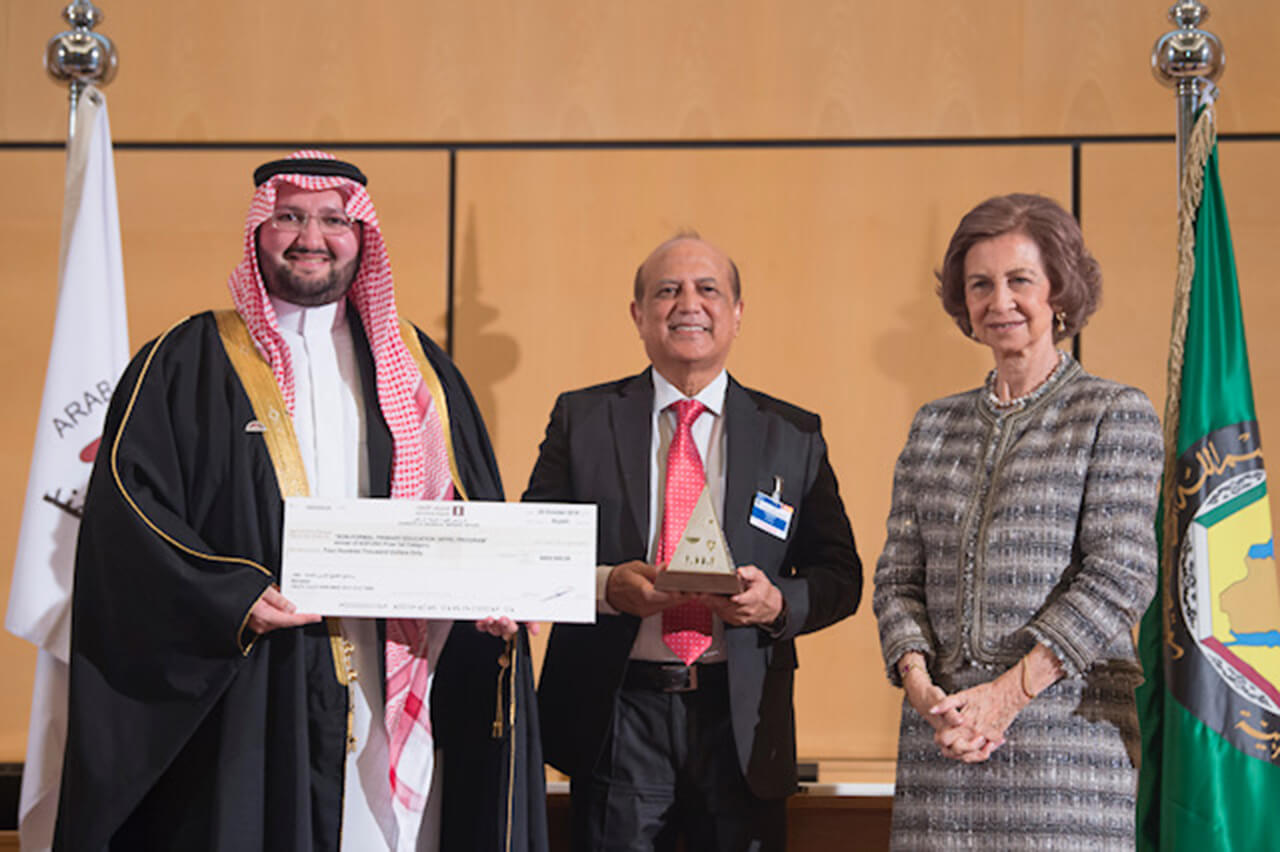
BRAC has won the 'AGFUND International Prize for Pioneering Human Development Projects' for 2017 for its non-formal primary education model especially designed for children who have dropped out of or never gone to school.
BRAC vice-chairperson Dr Ahmed Mushtaque Raza Chowdhury received the award from Prince Abdulaziz bin Talal bin Abdulaziz Al Saud, special representative of AGFund, at a ceremony at the United Nations Office in Geneva, Switzerland on Wednesday (17 October 2018). Queen Sofia of Spain, member of AGFUND prize committee, was also present at the event.
AGFUND International Prize is awarded by the Arab Gulf Program for Development (AGFUND), founded in 1980 by Prince Talal Bin Abdul Aziz Al Saud with support from Gulf Cooperation Council Countries. Working with a strategic focus on the Sustainable Development Goals (SDGs), the organisation introduced the AGFUND International Prize in 1999.
The prize committee selected two orgaisations and one individual as winners for the 2017 award themed on “Ensure inclusive and quality education for all and promote lifelong learning". A total of 76 projects competed for the prize.
BRAC has won the First Category Prize, awarded for projects implemented by UN, international or regional organisations, for its non-formal primary education model. The award comes with prize money worth US$ 400,000.
Nepalese organisation Jeevan Bikas Samaj has won the Second Category Prize for its 'Accelerating sustainable solution for quality education' project, which comes with US$ 300,000 prize money. This category is reserved for national level non-governmental organisations.
Sunitha Krishnan, an Indian anti-trafficking champion and co-founder of Hyderabad-based Prajwala, won the Fourth Category Prize, reserved for projects implemented by individuals. The money worth of the prize is US$ 100,000.
The Third Category Prize allocated for projects by government agencies has been withheld for failure to meet the award criteria, according to the AGFUND website.
Theme of AGFUND Prize 2018 is 'Eradication of Poverty', goal 1 of SDGs 2030.
WASH activities tackle challenge in coastal belt and haors Integrated planning urged to meet SDGs

Climate change is increasingly making it difficult to implement sustainable water sanitation and hygiene programmes in the coastal and haor regions. Increasing water salinity along the coast, increase in arsenic level, rising bacterial contamination and lack of land suitable for digging pits to install sanitary latrines are the main problems in this regard. The added problems in the hilly terrains and hard-to-reach localities are intense water shortage and unavailability of cost-effective and sustainable WASH technologies. Effective solutions to these problems must be put in place through strengthening mass awareness and integrated initiatives to reach the SDG-6 of ensuring universal access to safe water, improved sanitation and hygiene practices.
Speakers revealed this alarming scenario at a workshop titled "Sustainable WASH: Grassroots experience and way forward" organised today on Wednesday (17 October 2018) at BRAC Centre in the capital. BRAC organised this event to forward recommendations to strengthen the WASH programmes focusing on these regions.
Peter De Vries, first secretary to the Dutch Embassy, Dr Khairul Islam, country representative of Water Aid, SMA Rashid, Executive Director, NGO Forum for Public Health, Md Shofiqul Alam, specialist of WASH at the UNICEF, Bangladesh, Mohammad Golam Muktadir, executive engineer of Department Public Health Engineering, and Dr Md Akramul Islam, director of BRAC's Communicable Disease and WASH Programme, were present at the workshop as guests of honour and panel speakers.
Dr Muhammad Musa, executive director of BRAC, gave the welcome speech at the programme. Dr Muktadir Kabir, programme head of BRAC's WASH and malaria programmes, gave the keynote presentation.
Adequate number of cleaning staff is essential for the places and establishments where there are public gatherings to keep environment hygienic, Dr Khairul Islam observed, saying that, "But cleaning staff in Bangladesh has a high rate of dropping out. We have to give more effort and increase spending to retain cleaning staff."
Peter De Vries said, "We understand that this sector is in need of an investment boost. My government's investments will continue in this sector. But we are more interested in investing in innovative solutions, capacity building and effective management."
Dr Muhammad Musa in his speech thanked the Dutch government for its financial support to BRAC's WASH programme. Stressing priorities for Bangladesh to achieve SDG-6, he said, "Introducing sustainably effective solutions to the WASH sector in the hilly and remote areas is a high priority. Strengthening collaborations between the government and NGOs, reinforcing WASH activities at both primary and secondary schools and stepping up advocacy campaign both at the grassroots and policymakers must also be in the high priority list."
The speakers put forth a number of recommendations which include: Strengthening collaboration among stakeholders to speed up the tackling of SDG-6 challenges, involving local civil society to strengthen public awareness campaigns, creation and promotion of more private entrepreneurs to boost sanitation facilities, increasing national budget allocation to improve hygiene and faecal sludge management, intensifying WASH activities in schools and healthcare facilities across the country.
BRAC began its water, sanitation and hygiene programme in 2006. At present this programme has expanded to 289 upazilas in 54 districts. So far, under this programme BRAC has provided access to safe drinking water for 20 lakh and 46 thousand (2.46 million) people and sanitary latrines for 4 crore 27 lakh and 60 thousand (42.76m) people. Besides it, BRAC has also installed 1,619 tube-wells till September this year in Cox's Bazar for the forcibly displaced Rohingyas of Myanmar.
Innovative Justice Challenge in Dhaka

Aniket Doegar, a young innovator from India, through innovative use of technology has designed a new way to reach important messages to the poor and ultra poor communities. The common theme of the messages is that the measures the government has taken to ensure justice for them. Gautami Raiker, also an Indian, has a different initiative which helps startup businesses in legal matters. Lipi Rahman from Bangladesh has come up with her technological initiative to provide assistance to her clients in land matters. The idea of Cho Chan Myei, a Myanmar citizen, builds on the theme of ensuring women’s safety through using technology.
These innovative ideas were showcased at the Asia region grand finale of ‘Innovative justice challenge’ organised today on Saturday (6 October 2018) in the Dhaka city. The objective of the competition was to facilitate innovations that would help distressed people access justice easily and effectively. BRAC’s Human Rights and Legal Assistance (HRLS) programme and Netherland-based HiiL organised the Asia region’s final round of the competition at the BRAC Centre.
Aniket Doegar, selected winner by the jury panel, will be awarded the honour of ‘Justice Accelerator’ by HiiL and receive a grant of € 20 thousand in four instalments in one year. HiiL will also provide him with entrepreneurship training.
Former adviser to the Caretaker Government and founder of Power and Participation Centre Dr Hossain Zillur Rahman attended the event as the key speaker. Also present were HiiL representative Martain Kind and Nathalie Dijkman and HRLS associate director Sajeda Farisa Kabir.
Jury members lawyer Kanan Amal Dhru, lawyer Junaid Ahmed Chowdhury and BRAC Dairy and Food Project director Md Anisur Rahman were also present at the event.
Dr Hossain Zillur Rahman said, “Innovations are urgently needed to take justice at the doorstep of the ultra poor people. While it is natural that some innovations will win since it is a competition, but that does not at all mean that other innovations are failures. All the innovations are important to promote welfare of the society. So it is very important that everybody will proceed further with their own ideas and initiatives.”
The organisers said every year around one billion people around the world fall victim to injustice. Of these acts 82 per cent are left with no remedy. Around 30 per cent of the victims consider themselves too weak to seek the course of justice. Organisations and activists who work worldwide to promote justice call for an urgent improvement of the process of accessing justice. They also feel that this will need innovative solutions that will be both easily accessible and cost-effective.
HiiL, since 2005, is dedicatedly working to promote innovations to improve access to justice worldwide. Innovative Justice Challenge is one of their initiatives to this end. This year 430 ideas were submitted in the competition.
BRAC opens first two-storey learning centre for Rohingya children in Kutupalong

The two-storey structure, made mainly of bamboo and other natural ingredients, stands two feet above ground, which means rainwater won’t stand. The architecture follows indigenous Rohingya building traditions, allowing better resilience to extreme weather, ventilation and best utilisation of space. From yesterday (Wednesday) 240 Rohingya children are taking lessons in this centre.
This first two-storey temporary learning centre (TLC) for the Rohingya children has been on a pilot basis in the extension area of Camp-4 in Kutupalong of Ukhiya in Cox's Bazar. BRAC and the United Nations refugee agency (UNHCR) have jointly built the structure with support from the Refugee, Relief and Repatriation Commission of Bangladesh government. The learning centre was inaugurated by the refugee, relief and repatriation commissioner (RRRC), Mohammad Abul Kalam, ndc, on Wednesday (3 October 2018).
The learning centre was designed by the architecture department of BRAC University. Standing 38.6 feet high and 25 feet wide, each floor accommodates up to 40 students in one shift. Like all other TLCs of BRAC, this centre will also run on three shifts, six days a week. The entire structure is temporary, so it could be relocated anytime.
RRRC Mohammad Abul Kalam, ndc, said: “The Rohingya children will be taught English and mathematics besides Burmese language.” Nesar Ahmed, joint secretary to the Ministry of Primary and Mass Education of Bangladesh, praised the initiative and also BRAC’s role as partner to the government. Describing it as a cooperative and fruitful initiative, acting head of operations at UNHCR’s Cox’s Bazar sub-office, Bernadette Castel-Hollingsworth, said they were looking forward to doing more such work in future. UNICEF’s head of education, Pawan Kuchias wished best of luck to the initiative.
D. Safiqul Islam, director of BRAC Education Program, said every child is a goldmine of dreams and possibilities and education plays an important role in realising those. BRAC has taken this initiative in order to accommodate maximum number of children in limited space.
The ground floor is for pre-primary level, and the first floor for primary. BRAC’s target for 2019 is to enroll 100,000 Rohingya children in its learning centres. Currently, more than 500,000 children are living in the Rohingya camps, of which only 31% are attending the learning centres operated by BRAC and others.
BRAC is running 317 temporary learning centres in the camps, with more than 31,000 children enrolled. These learning centres focus on early-grade learning, basic literacy, numeracy, life-saving information, psycho-social support and life skills.
Discussion on World Habitat Day: Quality solid waste management is crucial for urban areas
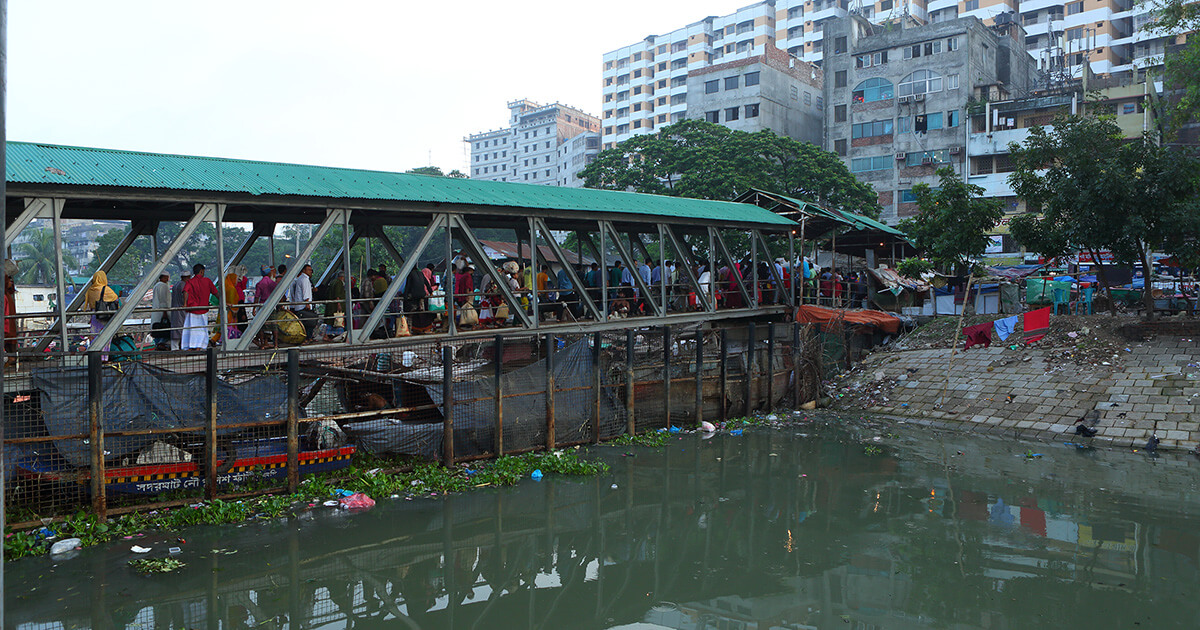
Municipal governments alone cannot achieve goals - citizens have to own the problem and be a part of the solution, speakers said at a discussion on solid waste management, organised on the occasion of World Habitat Day 2018.
BRAC Urban Development Programme jointly with the UN Habitat and Ministry of Housing and Public Works held the discussion session on Sunday (1 October 2018) at the Osmani Milonayatan in the capital.
World Habitat Day is observed on 1 October. This year's theme for the Day is ‘Municipal solid waste management'.
The organisers observed the day with daylong events comprising a national rally in morning from Jatiya Shahid Minar to National Press Club, a discussion session at Osmani Milonayatan, followed by a seminar on the same issue at the Public Works Department auditorium.
Housing and public works minister Engineer Mosharraf Hossain attended the discussion as the chief guest. UNDP Bangladesh country director Sudipto Mukerjee, lawmaker and chair of the parliamentary standing committee for the ministry of housing and public works Mohammad Dabirul Islam, secretary to the ministry Shahid Ullah Khandeker, and RAJUK chairman Md Abdur Rahman were present at the discussion, among others.
"We are integrating solid waste management in the government housing projects in which we will ensure waste segregation and proper disposal,” said Engineer Mosharraf Hossain.
BRAC Urban Development Programme's head Hasina Mushrofa said BRAC is carrying out solid waste management operations in the country's urban areas. “Currently, we are providing direct waste collection services to 65,000 people in 20 cities and municipalities," she said.
National nutrition sensitive plan will reduce intake gap in Vitamin A, iron and zinc
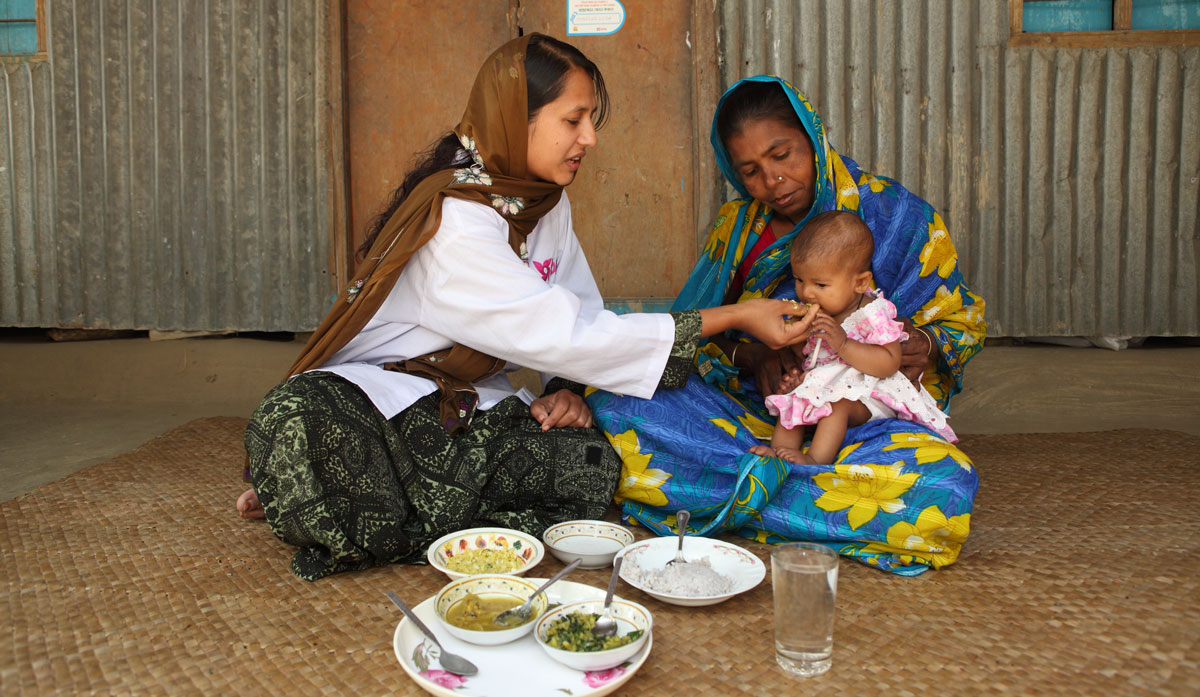
Effective implementation of the 'Second country investment plan: Nutrition- sensitive food systems' (CIP2) undertaken by the Bangladesh government will highly benefit the country's social security situation. The implementation of the plan will also substantially reduce the shortage of intake in Vitamin A, iron and zinc over a decade.
Experts gave these observations on Thursday (27 September), while presenting the findings of a study on the probable impact of CIP2, conceived by the Food Planning and Monitoring Unit under the Ministry of Food. The discussion session titled 'Final consultation on ex-ante impact assessment of CIP2' was organised at Westin Hotel in the capital.
The Research and Evaluation Division (RED) of BRAC conducted the study with support from Food and Agriculture Organisation (FAO). Earlier, BRAC presented four more analyses of the probable impact of CIP2 to have concluded with the Thursday's presentation, organisers said.
Chaired by Dr Kaosar Afsana, director of BRAC's Health Nutrition and Population Programme, the event was also addressed by guests of honour M Badrul Arefin, director general of Food Planning and Monitoring Unit (FPMU), and Md Shah Nawaz, director general, Bangladesh National Nutrition Council. FAO's senior policy analyst Benoist Veillerette also joined the session through Skype from Rome.
The experts presented their analysis on five sub-programmes of CIP2, the focuses of which are: improve and expand nutrition-sensitive agriculture programmes; sustain micronutrient-rich small fish production; scale up behaviour change communications on nutritious food preparation, safe storage, household processing and improved consumption; expand and strengthen safety net programmes (SNPs) supporting vulnerable groups including poor women, children, elderly, disabled people, displaced population and communities living in remote areas; and introduce nutrition-sensitive social safety net programmes especially for mothers and children.
Below are the highlights of the analysis
1.6 million (16 lakh) women will be trained in home gardening under CIP2, with an expectation that 12.3 million (1 crore 23 lakh) home gardens will be grown over a decade. It will lead to reducing the gap of intake in iron, zinc and Vitamin A up to 4.5%, 8% and 100%. Besides consumption, the families will also sell the produce. According to estimate of the BRAC study, the initiative will bring $2.6 benefits against investment of $1.
CIP2 will train 3.2 million (32 lakh) pond owners in mola and other small fish culture over a 10-year period and it is estimated that 30% of the training recipients will utilise their learning. The household consumption of the fish will help reduce gaps in iron, zinc and vitamin A intake by 15%, 25% and 100% respectively. The combined benefit from household consumption and selling is expected to amount to $4 against investment of each dollar.
Behaviour change communications training on nutritious food preparation, safe storage, household processing and improved consumption is also extremely important as it will help ensure proper nutritional intake at family level and reduce the number of babies with low birth weight.
The benefits of reaching social safety net programmes to the vulnerable communities is longer term, with a potential for bringing up to $28 against each dollar of investment.
FPMU director general M Badrul Arefin said, "Nutrition is among the priorities of the present government and we are working to fulfil it".
BRAC director Dr Kaosar Afsana said, Evidence-based original research and studies are essential for formulating effective nutrition sensitive plans. BRAC will do more such necessary studies in future.
To reduce prevalent malnutrition among mothers and children in the disadvantaged families and communities in Bangladesh foods like fortified rice are essential. The study viewed that nutrition sensitive programmes should be introduced in the government's social safety net initiatives.
Sir Fazle Calls for stepping up funding and innovations to tackle TB at UNGA high level meeting
The international community must increase investments in the invention and application of new tools and treatments, such as vaccines, diagnostics and drugs to successfully fight tuberculosis, the world’s deadliest communicable disease.
BRAC chairperson Sir Fazle Hasan Abed said these while addressing a high level meeting of UN General Assembly on Wednesday (26 September 2018).
Speaking at the Multi-stakeholder Panel 1 session on fight against tuberculosis, Sir Fazle observed that one of the leading causes of inadequate funding is that it is the disease of the third world where living conditions are often extremely unhealthy.
Having stressed finding out innovative delivery mechanisms “that account for the lived reality of tuberculosis patients,” Sir Fazle shared with audience BRAC’s innovation in this regard. In Bangladesh the biggest barrier to TB treatment is that often patients do not adhere to the long treatment course.
By applying a simple economic nudge BRAC nearly solved the issue. It asks a TB patient at the start of treatment to put down a deposit of 200 taka ($2.40) and get it back after completing the course. Led by the policy direction of the Bangladesh government, BRAC now reaches 101 million people and ensure case detection and treatment for over 160,000 TB patients annually with 94 per cent cure rate.
He also emphasised collaborative actions, saying “nongovernmental organisations, enabled by governments and in partnership with donors and the private sector, can play a critical role in this area”.
“With a renewed commitment to funding combined with a focus on effective and innovative delivery methods I believe we can finally relegate tuberculosis to the history books”, said BRAC chairperson.
Sir Fazle Hasan Abed at launch of UN Youth Strategy
Adequate investments in programmes to empower the next generation are a prerequisite for young people to realise their full potential, said BRAC chairperson Sir Fazle Hasan Abed at a high level UN event in New York on Monday (24 September 2018).
The event titled "Youth2030" saw the combined launch of the "Youth2030: The United Nations Strategy on Youth" and "'Generation Unlimited' Partnership", an initiative of the UNICEF, targeting the development of the world's young population. Sir Fazle is a member of the leaders group of 'Generation Unlimited' as a representative of civil society. The leaders' group also includes the UN secretary-general, president of Rwanda, prime minister of Ethiopia, and chief executive officer of Unilever, among its other members.
Watch the full video here
"I have long envisioned a world where children born in slums will become engineers, scholars and presidents. The world sees immense challenges, but a better future beckons for today’s youth. The promise of technology is opening up new opportunities. Poverty rates are falling in all major regions of the world. Supported by our commitment to the UN Youth Strategy and the Generation Unlimited Partnership, I believe young people – through compassion, ethical leadership, and a view toward equity – will make that vision a reality," said Sir Fazle in his speech.
The UN has launched its youth strategy to cater to the needs of young population which has now reached 1.8 billion between the ages of 10 and 24, being the largest young generation in history. In line with the Youth2030 strategy the UNICEF initiated the 'Generation Unlimited' Partnership that aims to ensure that every young person is in education, learning, training or employment by 2030.
"I commit to working with governments to ensure adequate investments in programmes to empower the next generation of global leaders," said Sir Fazle, while also observed, "These programmes must include improvements in the quality of secondary schooling. They must also include more relevant and advanced vocational skills training, more effective girls’ empowerment programmes, and more inclusive higher learning opportunities."
To learn more about Youth2030, click here
BRAC urges stronger int’l dialogues, actions to support the Rohingya
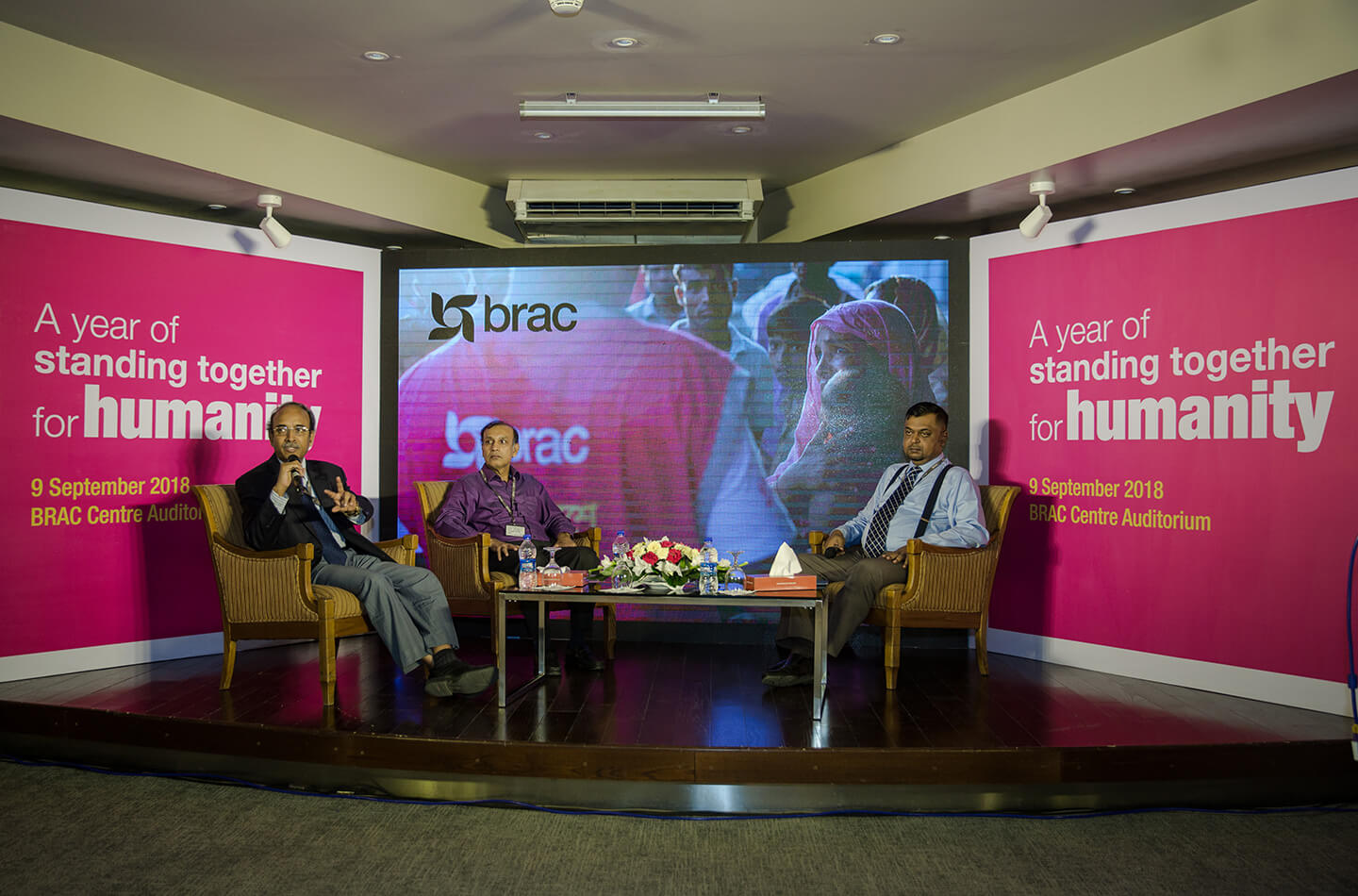
Ongoing international dialogues and actions to support the forcibly displaced Myanmar nationals sheltered in Bangladesh need to be stronger to ensure a safe and meaningful future for the more than 500,000 children from this community. The call was raised at a program organised by BRAC, one of the leading on-ground responders, at BRAC Centre Auditorium in Dhaka this morning, marking one-year since the influx began. BRAC senior officials shared experiences and learnings with journalists from the last 12 months of humanitarian interventions.
At the event, BRAC also announced the launching of an international communication campaign titled #SpaceOnEarth, to help strengthen global support for the Rohingya, especially the children. The campaign was developed in partnership with Ogilvy and Texel Foundation.
Women and children typically bear the biggest brunt of any disaster. Children are often left with no option but to shoulder the same responsibilities as parents. In the #SpaceOnEarth video, Rohingya children describe in their own words the atrocities they faced. They ask: in a world as big as ours there must surely be a safe place they can call home. The video can be accessed here: https://bit.ly/2wOP93f
BRAC Executive Director Dr Muhammad Musa said children are behaving like adults. They have seen so much atrocity in their short lives that they have forgotten to cry, as if their childhood is lost. “We cannot let that happen and the world needs to step in to support the effort to ensure a meaningful future for these children.”
The event began with Dr Akramul Islam, director of BRAC's Humanitarian Crisis Management Programme, giving an overview of the organisation’s activities for the Rohingya community in the last year. He stressed BRAC's involvement with both the Rohingya and the host communities.
BRAC, as one of the very first responders to the crisis, provided emergency services in the first phase, and then expanded into comprehensive, coordinated services in areas such as healthcare, education, skills development and agriculture, as a partner to the government. Until now, more than 45,000 children have been registered in BRAC’s child friendly spaces. BRAC’s healthcare centres provided consultation to over 1.1 million people and nearly 150,000 people are now living in shelters built by BRAC. In addition, BRAC has also been serving people from the host communities from Teknaf and Ukhiya with education, life skills, livelihood and emergency support.
Join the world’s biggest family

